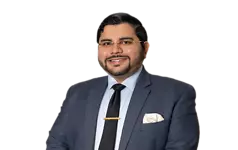Public Employment Relations Board Adopts New Standard for Finding Interference Based on Employer’s Conduct During Discovery in Other Tribunals
In Victor Valley Union High School District (2022) PERB Dec. No. 2822, the Public Employment Relations Board (“PERB” or “Board”) chose to adopt a federal NLRB standard for finding interference, based on an employer’s deposition questions occurring in a disciplinary matter. PERB applied this expansive, three-factor test to find that the Victor Valley Union High School District (“District”) engaged in interference in violation of the Educational Employment Relations Act (“EERA”)[i] when the District’s attorney asked a Union representative questions about confidential communications with other bargaining unit members in discovery in a teacher dismissal matter. This new theory of liability for interference puts school districts and other public employers on notice that their litigation conduct in cases occurring outside PERB may give rise to liability for an unfair practice violation.
Background
A.B. (“Employee”) was a former certificated teacher at one of District’s schools. Employee was the subject of several allegations of misconduct stemming from their time as a teacher. The Employee requested that a Union representative be present during the course of the investigation, under Weingarten.[ii] The District hired an outside investigator who submitted findings concerning the Employee’s conduct. The District relied on those findings to terminate the Employee.
The Employee appealed the dismissal under the Education Code before the California’s Office of Administrative Hearings (“OAH”). During the appeal process, the Employee filed initial disclosures (similar to a discovery response in civil litigation) which listed the Union representative as having discoverable information. The District served a subpoena and deposition notice on the Union representative. As part of the deposition, the District’s attorney questioned the Union representative, in part, regarding communications between the Union representative and other bargaining unit members concerning the Employee.
The Union filed an unfair practice charge with the Board, alleging that the District violated EERA through its deposition questioning of the Union representative. A Board ALJ found that the District’s deposition questioning of the Union representative constituted interference under EERA.
PERB’s Decision
Under EERA, it is unlawful for a public school employer to deny an employee representative organizations (such as unions) rights guaranteed by the EERA. One such right is the protection against the public school employer from “interfere[ing] with, restrain[ing], or coerc[ing] employees because of their exercise of rights guaranteed by [EERA].”[iii] The Meyers-Milias-Brown Act and other labor statutes contain identical prohibitions against interference with numerous other public employees’ exercise of their protected rights.[iv]
The Board began by outlining the basic standard for analyzing interference claims, under the well-established Carlsbad test — namely, that to find interference, the “employer’s conduct tends to or does result in at least slight harm to protected rights.”[v] The Board chose to introduce an “extra hurdle” for charging parties to clear, before they could demonstrate a prima facie case of interference with respect to an employer’s conduct in civil litigation and other fora outside of PERB. PERB adopted the federal standard in Bill Johnson’s Restaurants, Inc. v. NLRB (1983) 461 U.S. 731 (“Bill Johnson’s”), which requires that the charging party “establish that the respondent acted without any reasonable basis and for an unlawful purpose.” This federal principle “preserves parties’ ability to litigate colorable legal rights while disallowing baseless, bad faith conduct that tends to harm protected labor rights.”[vi] PERB observed that the NLRB also employs a third factor to assess whether litigation discovery conduct constitutes interference. Specifically, the NLRB weighs the employer’s interest in acquiring information in civil discovery against the impact disclosure would have on employees’ protected labor rights. The NLRB synthesized the aforementioned standards into a three-factor test for assessing whether deposition questioning rises to the level of inference by the employer:
“First, the questioning must be relevant. Second, if the questioning is relevant, it must not have an illegal objective. Third, if the questioning is relevant and does not have an illegal objective, the employer’s interest in obtaining this information must outweigh the employees’ [protected rights].”[vii]
In applying this new framework to the facts of the case, PERB found that the District’s deposition questioning of the Union representative was relevant as the questions pertained to the Employee’s conduct and are allowed under the broad scope of discovery. PERB declined to opine on whether the District’s deposition questioning related to an illegal objective. Instead, the Board focused on the last element, and found the line of questioning by the District about Union activities to be unlawful conduct given the harm and the chilling effect on protected rights. The Board relied on numerous NLRB decisions in highlighting that employers’ “attempts to use litigation discovery to inquire into union activities” remain “particularly indicative of unlawful conduct.”[viii] In this particular case, the Board found this balancing test favored the Union representative, in part given that the District could have obtained the sought information from other sources instead of invading protected union communications. PERB also cautioned employers from seeking to “deputize” union representatives to divulge information which could be used against represented employees, as this tactic “chills employees’ willingness to speak candidly to their union representatives.”[ix]
Finally, PERB chose to award attorney fees without relying on its traditional standards — that is, that an employer pursued a defense or claim lacking arguable merit, and pursued the defense or claim in bad faith. The Board concluded that attorneys’ fees were nonetheless warranted as a make-whole remedy under an alternative theory, namely, when a party reasonably incurs legal expenses in a separate proceeding to remedy, lessen, or stave off the impacts of the other party’s unfair practice.[x]
Implications of Decision
The Board’s adoption of the NLRB’s three-part interference test constitutes a substantial expansion of employers’ obligations and liability under state labor law when litigating civil matters outside of PERB proceedings. This case follows another recent decision, in which PERB found that an employer’s interview questioning of represented employees in advance of a grievance arbitration constituted interference.[xi] Considered in tandem, PERB has signaled that it will scrutinize employers’ questioning of represented employees in the context of disputes occurring in other settings, be it investigations or civil litigation. These decisions provide a cautionary tale that otherwise relevant discovery methods, pursued for lawful and reasonable objectives, may nonetheless expose employers to liability for interference claims. PERB’s new approach to employer questioning also introduces substantial uncertainty, as both cases rely heavily on the circumstances involved to ascertain if interference occurred.
Given this unpredictable new landscape, school districts and other public employers should re-examine their approach in discovery occurring in other tribunals, including contractual arbitration, civil litigation, or administrative proceedings, as otherwise ordinary deposition tactics may create additional liability. We recommend that school districts and other public employers take proactive steps to reassess their tactics, and consult with legal counsel to ensure they abide by PERB’s latest standards and obligations. Please feel free to reach out the authors of this alert or your regular AALRR counsel with questions, or to strategize on the impact of this case on your agency.
This AALRR publication is intended for informational purposes only and should not be relied upon in reaching a conclusion in a particular area of law. Applicability of the legal principles discussed may differ substantially in individual situations. Receipt of this or any other AALRR publication does not create an attorney-client relationship. The Firm is not responsible for inadvertent errors that may occur in the publishing process.
© 2022 Atkinson, Andelson, Loya, Ruud & Romo
[i] California Gov’t Code § 3540 et seq.
[ii] NLRB v. J. Weingarten, Inc., 420 U.S. 251 (1975).
[iii] Cal. Gov’t Code § 3543.5(a)-(b).
[iv] See e.g. Cal. Gov’t Code §§ 3506 (MMBA), 71635.1 (Trial Court Employment Protection and Governance Act).
[v] Carlsbad Unified School District (1979) PERB Dec. No. 89, p. 10.
[vi] Victor Valley Union High School District (2022) PERB Dec. No. 2822, p. 10, citing Bill Johnson’s.
[vii] Guess?, Inc. (2003) 339 NLRB 432.
[viii] Victor Valley Union High School District (2022) PERB Dec. No. 2822, p. 15.
[ix] Victor Valley Union High School District (2022) PERB Dec. No. 2822, p. 17.
[x] Sacramento City Unified School District (2020) PERB Dec. No. 2749, pp. 11-12.
[xi] City of Commerce (2018) PERB Dec. No. 2602-M.
Attorneys
 Partner858-485-9526
Partner858-485-9526 Partner916-923-1200
Partner916-923-1200 Partner626-583-8600
Partner626-583-8600 Associate951-683-1122
Associate951-683-1122
